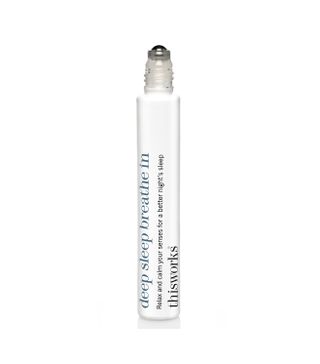8 Amazing Things That Happen to Your Brain (and Body) When You Go Outside


If we told you there was a way to elevate your mood, reduce stress, improve your work performance, live longer, and make your workout feel easier—for free—would it seem too good to be true? The science doesn't lie: Simply spending some time outdoors can benefit your body and mind in countless ways. So whether it's a quick jaunt on your lunch break, a tough weekend hike, or a few tranquil moments in your backyard, consider scheduling some time in nature today. And if we still don't have you convinced, the impressive health benefits of going outside below just might.
Your mood gets a boost

Even if you live in an urban setting, consider seeking out some greenery. Stanford researchers recently found that people who spent 90 minutes walking in nature significantly decreased activity in the area of their brains tied to depression, especially as compared to people who walked in a city environment. Other studies show that the Japanese ritual of shinrin-yoku—also known as "forest bathing" (simply the act of spending time in nature)—significantly reduces cortisol levels. In other words, simply stepping outside might be enough to curb your anxiety.
Your mind feels clear and focused

Between work, our to-do lists, and all the other demands of daily life, it's all too easy to lose ourselves in an unrelenting brain fog. But research shows that just by interacting with nature for an hour—and that includes just looking at photos of landscapes—we can improve our focus and short-term memory by up to 20%. (Keep that in mind the next time a big presentation or deadline looms.)
Inflammation starts to ebb away

If the practice of "earthing"—making skin-to-ground contact—seems like something you'd see in a documentary about communes of the '60s, keep in mind that going barefoot has been scientifically shown to relieve pain and inflammation. Studies also show that spending time outside can give the immune system a boost.
You sleep better

Scientists at the University of Colorado recently confirmed that going camping is a great way to battle insomnia—that's because sleeping outside basically recalibrates our body's circadian rhythm, or internal clock. But if spending a weekend in a tent just isn't your thing, keep in mind that just walking barefoot outside for a few minutes can also you get a better night's sleep later on.
You begin to think more creatively

There's a reason Steve Jobs famously took meetings on foot: Research shows that walking—epecially while exposed to fresh air—stimulates creative thinking and problem-solving. (A word to the wise: Taking a stroll is great for writer's block.)
Exercise feels easier (Yes, seriously)
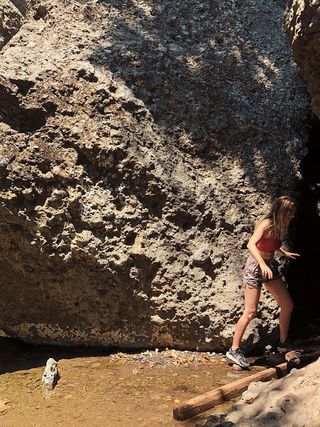
Skip the treadmill and take your run outdoors—and don't be surprised if you hit a personal best. One fascinating study found that a group who hiked for 45 minutes felt more awake, attentive, and less fatigued than a group that walked on a treadmill instead. (Scientists guess that the combination of a dynamic outdoor environment and the sedative effect of nature help a workout feel less difficult.)
You absorb more vitamin D

City dwellers are particularly prone to vitamin D deficiencies, which might manifest in seasonal depression, brain fog, and fatigue. Because sunlight stimulates our body's synthesis of vitamin D, just spending 10 minutes outside—even in the dead of winter—can relieve these symptoms.
You might even live longer

After observing 108,000 women over the course of eight years, Harvard researchers recently found that those who lived in green areas had a 12% lower death rate than those who lived in urban environments. We're not suggesting that you move, city folks—but perhaps you might be inspired to log some regular time in nature.
Next up: These Indoor Plants Will Make Your Space Healthier—and They're Hard to Kill
This article was originally published at an earlier date and has since been updated.
Disclaimer
This article is provided for informational purposes only and is not intended to be used in the place of advice of your physician or other medical professionals. You should always consult with your doctor or healthcare provider first with any health-related questions.
-
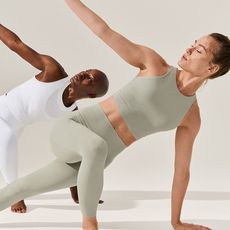 I Live for Yoga and Pilates—These Are the Pieces That Help My Flow
I Live for Yoga and Pilates—These Are the Pieces That Help My FlowTake notes.
By Humaa Hussain
-
 It's Time to Get Our Nutrition in Check for Summer—This App Is Making It Easy
It's Time to Get Our Nutrition in Check for Summer—This App Is Making It EasyThe recipe ideas are endless.
By Who What Wear
-
 If You're Battling With Digestive Issues, This Could Be Why
If You're Battling With Digestive Issues, This Could Be WhyTurns out, you may not have IBS after all.
By Kia Topps
-
 Our Editors Own a Lot of Sneakers, But This Pair Comes in First Place Every Time
Our Editors Own a Lot of Sneakers, But This Pair Comes in First Place Every TimeA major win.
By Aniyah Morinia
-
 I Changed My Mind About Strength Training When I Tried This Workout
I Changed My Mind About Strength Training When I Tried This WorkoutMy confidence is officially on 10.
By Kia Topps
-
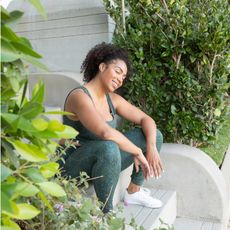 This Type of Gear Will Take Your Workout to the Next Level
This Type of Gear Will Take Your Workout to the Next LevelBring it on.
By Sarah Yang
-
 6 Essential Oils That Will Heal Your Painful Sunburns
6 Essential Oils That Will Heal Your Painful SunburnsAll-natural relief ahead.
By Samantha Parsons
-
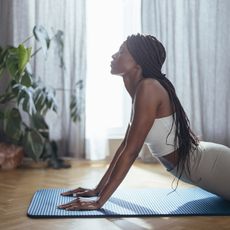 The Activewear Accessory That Can Change Your Yoga Practice
The Activewear Accessory That Can Change Your Yoga PracticeIt's so helpful.
By Sarah Yang


